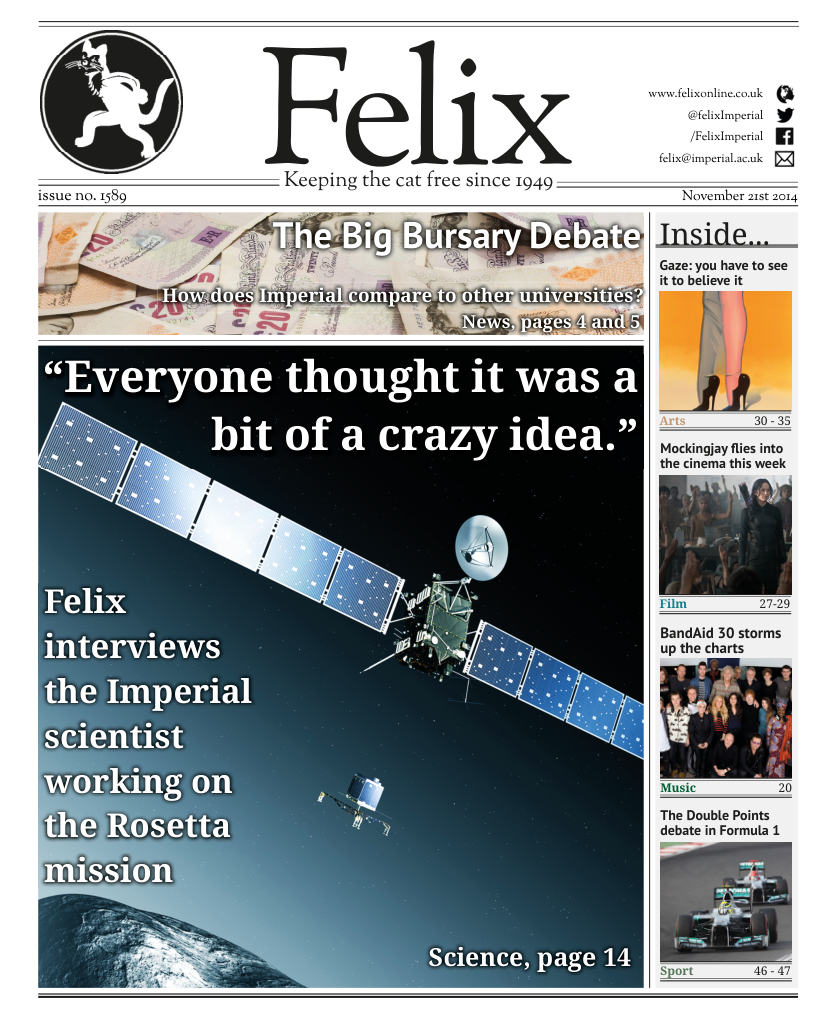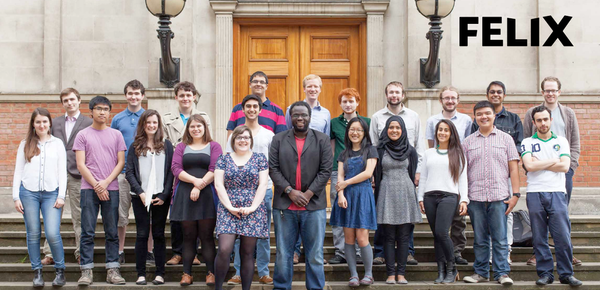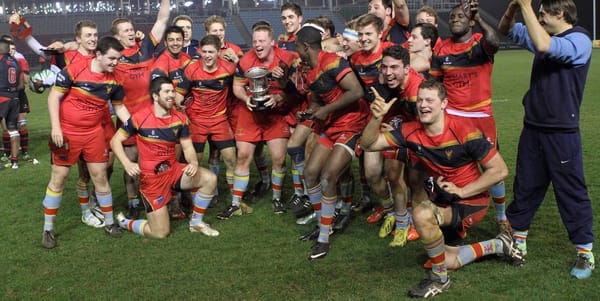Shirtgate: Just what is the problem?
We’re alienating future female scientists, says George Butcher

I love a good space mission. Pushing the final frontier, venturing into the unknown, lots of robots, rockets and risk – as a budding engineer, what more could I want?
Space missions have been used to inspire future scientists and engineers for generations: from the Apollo landings and the ill-fated Challenger mission, to today’s missions to neighbouring planets with probes and robots to see what lies beyond our own blue dot.
This week’s landing of Rosetta’s probe is the perfect example. Groups like the European Space Agency (ESA) know there is little justification for their huge budgets if they just keep the action to themselves. Rockets are cool and if you can get the public excited about what you’re doing then you can fund more science. Not only that, but you can use these projects to excite the next generation of scientists and engineers and get more kids choosing to study these subjects.
As public bodies this should be, and is, one of their key goals. Last week any science teacher worth their salt would have had the web stream of the Rosetta mission on in their classroom. They would have built discussions and lessons around it: what’s the point of the mission? What’s a comet? How did they get there? Isn’t science awesome?
But then as the nation’s physics teachers tuned in or watched YouTube interviews, we had Shirtgate. Viewers couldn’t help but notice that one of the scientists’ shirts was covered in semi-naked women. How does that make girls in that science class feel? That they could have a future doing similar work? That science is for them? That it’s not just a bunch of male geeks?
There has rightly been a huge amount of effort to get more girls choosing to study STEM subjects, According to a recent parliamentary report, just 17% of STEM professors are women. If you’re a woman in science and technology, at some point you’ll probably be asked to do some outreach work. I’m a straight, white man and I have!
As a community we’re missing out on the contribution that these women could be making and that’s a detriment to us all. Projects like the comet landing are supposed to be reversing this, but sadly scientists keep shooting themselves in the foot with these stupid mistakes.
Let’s all learn from this and move on.










